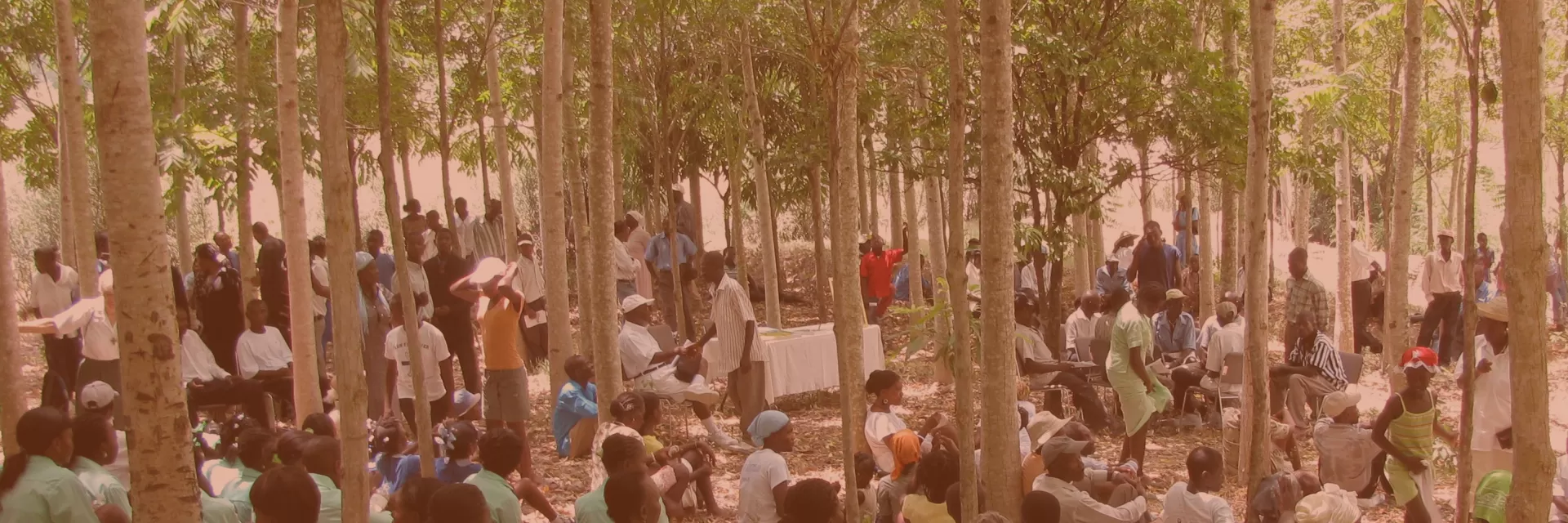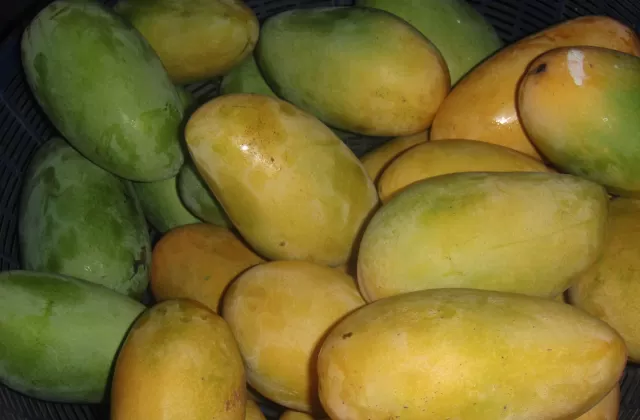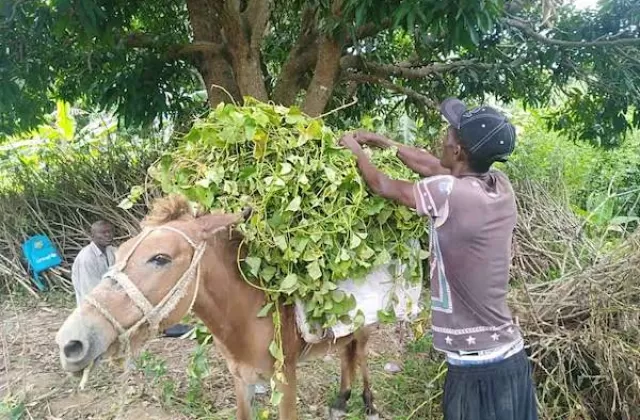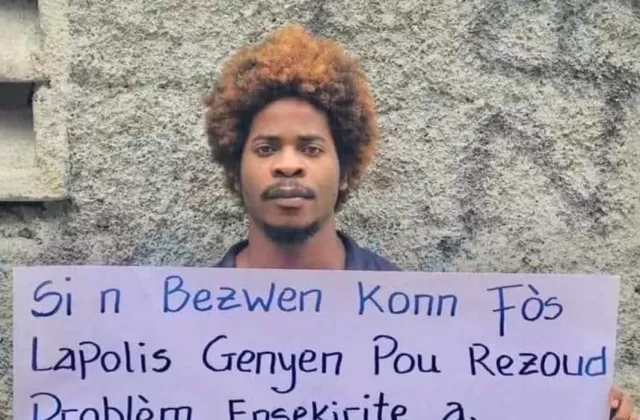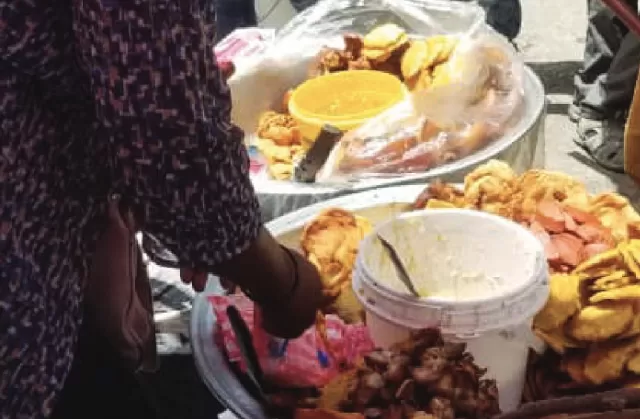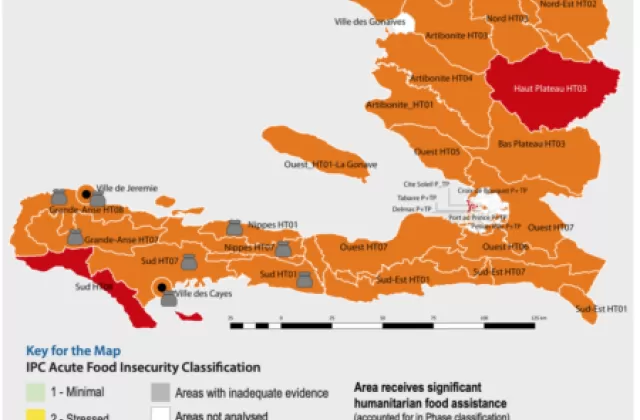Quixote Center’s work in Haiti prioritizes systemic change. Our theory of change has three aspects:
- Economic development initiatives that lead to meaningful and sustainable jobs and income for families and communities;
- Reforestation to preserve Haiti’s environment and protect the soil and watershed;
- Advocacy to promote US policies that support Haitian democracy and Haitian-led solutions to poverty, gang violence, and migration.
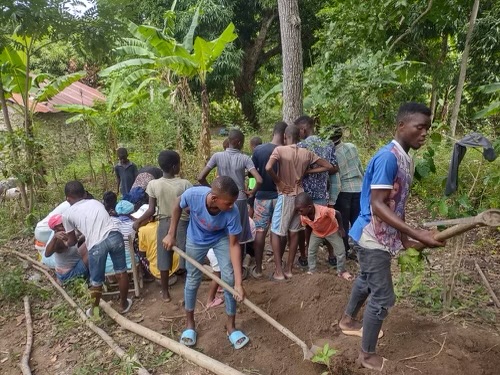
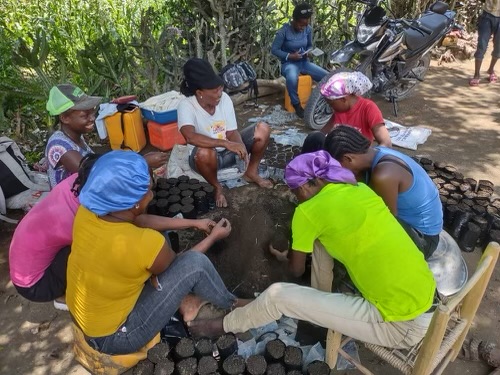
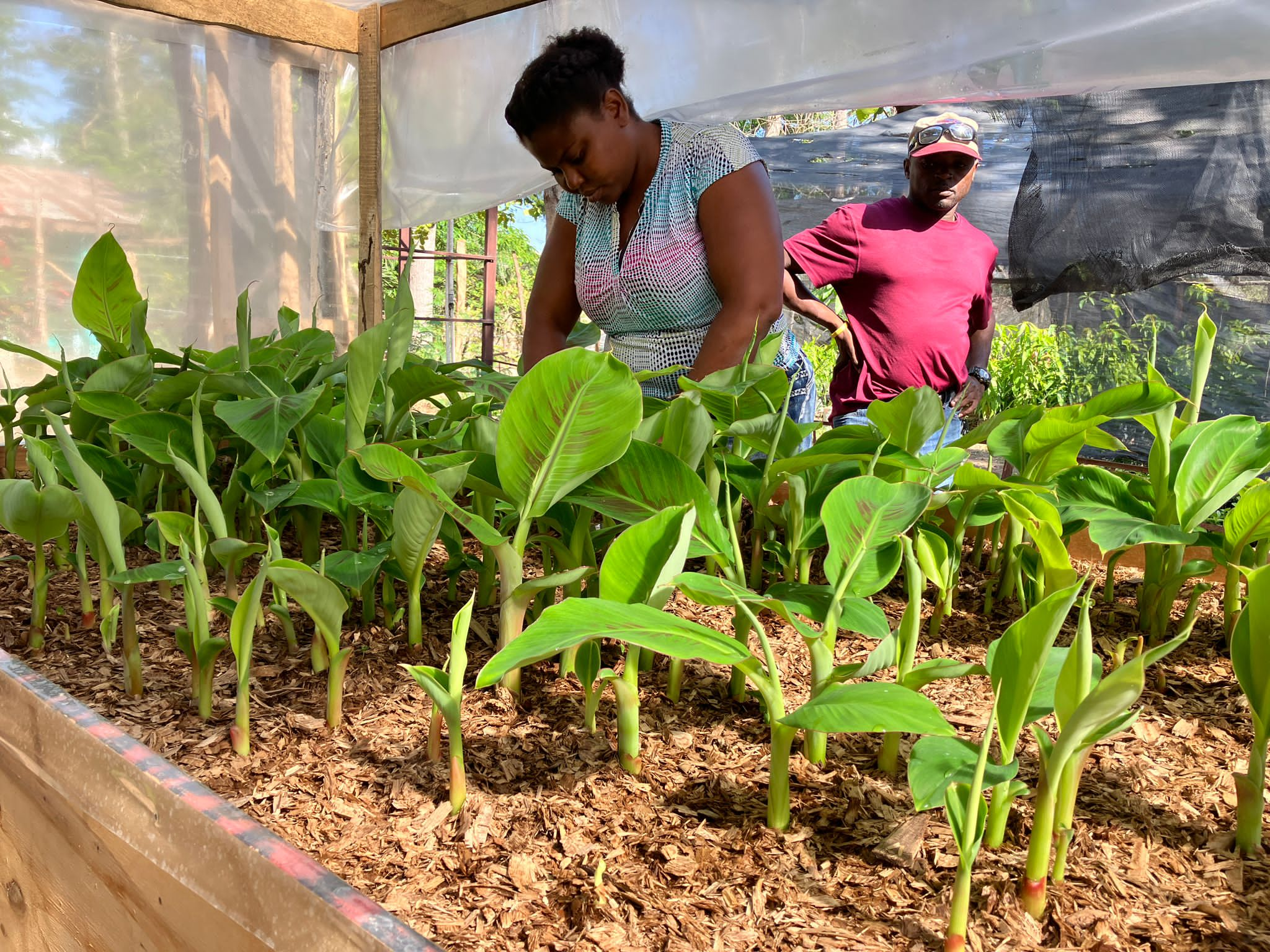
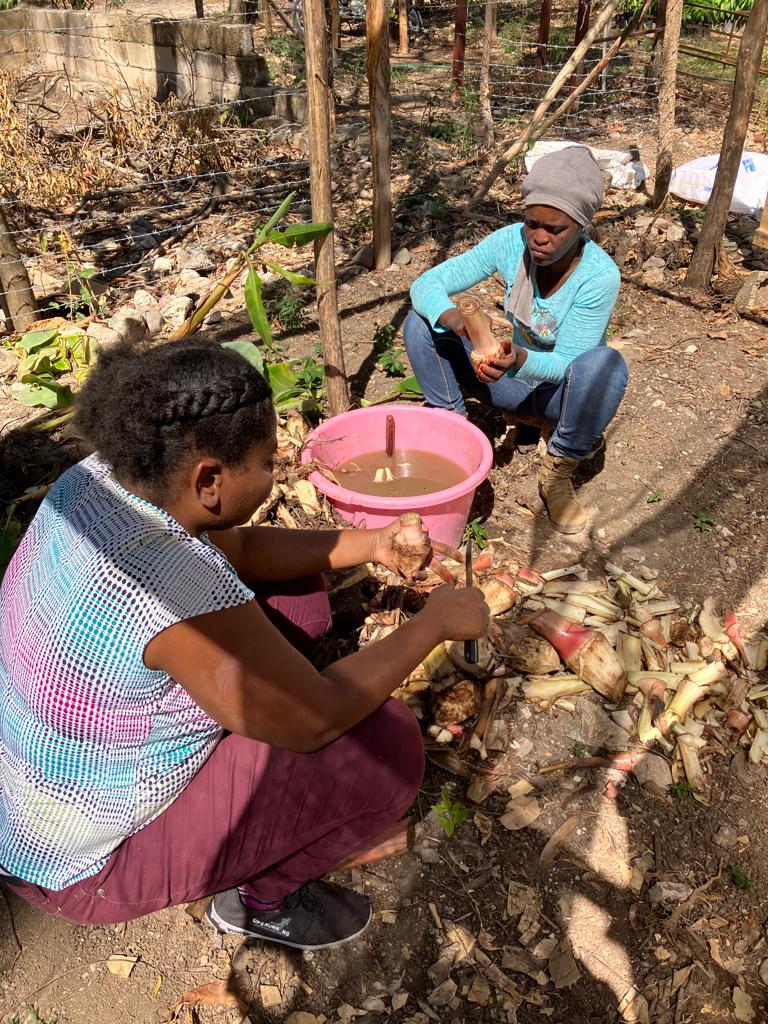
Quixote Center initially launched Haiti Reborn in 1991 during a period of renewal in Haiti, following the election of Aristide and the rise of Lavalas, a popular movement for democratic reform. The coup that ousted Aristide later that year led us to focus our efforts on speaking out against United States intervention in Haiti. US foreign policy as well as development aid still has enormous influence over Haiti and its future. US NGOs and churches also funnel significant funds into Haiti, leading many Haitians to dub their country “the republic of NGOs.”
The Quixote Center partners with Haitian organizations to support smallholder farmers to build sustainable livelihoods from agriculture and reforestation. The Jean Marie Vincent Formation Center located in Grepen, Haiti, is our primary partner in the north while in the south DCCH, the Christian Community Development in Haiti is our main partner in Gouin, Les Cayes.
There is a major humanitarian crisis that is worsening the medical, economic, housing, security and other social aspects of life in Gros Morne. The Quixote Center is working with our local partners to support vulnerable familiesin through our Emergency Campaign. You can read more and support the campaign HERE.
JMV Center
The Jean Marie Vincent Formation Center houses a tree nursery, a model instructional garden and multiple classrooms. These resources help farmers increase the yields of their farms, find new markets for their products, and gain access to the seeds and technology they need to succeed. The agronomy team from the JMV Center travel throughout the Arrondissement of Gros Morne to deliver workshops organized with a network of small farm associations, the Catholic Church’s Caritas network, and local schools. With our support, the JMV Center also maintains the Tet Mon model forest, a reforestation project that is the only one of its kind in the region. The JMV team holds formation sessions on reforestation and tree maintenance for local leaders, schoolchildren, and agronomy students.
DCCH
The Social and Economic Recovery Program was launched in January 2025 as a scalable and replicable pilot project working with 100 rural families reaching up to 1000 people. These participating families are the protagonists of this program that aims to improve their income and food security while building resilience and eliminating dependence on outside assistance. Based on a 2023 community study, the project provides targeted investments in agroecological training, animal care, women empowerment through microloans and small business ventures. After collecting baseline data, the program will be tracking progress with the goal to increase household income by 20%, school attendance by 60%, crop yields by 60% and trade diversification among women.
Read the most recent report from our partners HERE.
Food security crisis in Haiti deepens, long term solutions are available
A portion of Haiti’s population is experiencing famine conditions for the first time since the Integrated Food Security Phase Classification (IPC) system was created in 2004. 19,000 people in Cite Soleil are estimated to be at risk of starvation. Outside of Port-au-Prince, the situation is also dire. IPC estimated 4.7 million people are facing severe food insecurity, with 1.8 million people at “urgent” levels.
International community steps closer to military intervention in Haiti
Haiti’s acting Foreign Minister, Jean Geneus, and US Secretary of State Anthony Blinken, met with the Secretary General of the Organization of American States, Luis Almagro, last week to discuss the crisis in Haiti.
Things fall apart: An epidemiology of violence and cholera
On Sunday, October 2, acting health officials announced that 8 people had died of cholera in the community of Dekayet in southern Port-au-Prince and in Cite Soleil. These are the first cholera cases in three years. Prior to 2010 Haiti had no recorded cholera cases.
Protests in Haiti this week
On Wednesday, September 7, thousands of people mobilized throughout Haiti in demonstrations against the de facto government of Ariel Henry. Protests against the government have been growing as insecurity has gotten worse, and the economy continues to decline.
Between Del Rio and the the deep blue sea
In mid-September of 2021 thousands of migrants began gathering at the Del Rio border crossing in Texas. The majority of the estimated 15,000 people who arrived over the course of a few days were from Haiti. The message from the Biden administration was clear: Don’t come! If you do, you will be sent back.
Solidarity Center report on wages in Haiti
The AFL-CIO’s Solidarity Center just released their latest living wage study for Haiti, The High Cost of Low Wages, with a particular emphasis on wages and conditions for garment workers. The garment sector employs close to 58,000 workers, 63% of whom are women.
Press Release: Quixote Center Opposes Armed Intervention in Haiti
The security crisis in Port-au-Prince continues to deteriorate. In July alone, nearly 500 people were killed when rival gangs warred in Cite Soleil. Armed groups control transportation routes into and out of the capital, extorting and kidnapping travelers.
August 14, 2021 Haiti Earthquake Anniversary
Early in the morning of 14 August 2021, a 7.2 magnitude earthquake struck southwest Haiti, killing 1200 people, injuring 12,000, and causing hospitals, schools and homes to collapse. Hundreds of thousands of people were in immediate need of humanitarian assistance, and many still are.
Does Haiti need more sweatshops?
Republican Senator Marco Rubio promoted his policy ideas for Haiti in a recent op-ed. He called out the Biden Administration for a failure to fully engage what Rubio calls a looming crisis of political collapse and unauthorized migration. Rubio's arguments are similar to other recent opinion pieces in The Washington Post and elsewhere, calling on the administration to “do more!”
Resources to help understand the gang violence in Port au Prince
[Warning: This post contains descriptions of extreme violence]
Michelle Bachelet, the United Nations High Commissioner for Human Rights, issued a statement on March 17, that read, “Armed violence has reached unimaginable and intolerable levels in Haiti…It is crucial for urgent steps to be taken to restore the rule of law, to protect people from armed violence and to hold to account the political and economic sponsors of these gangs.”
The statement offered the following account of recent violence:
Earth Day 2022: Thinking globally still matters!
In Haiti 4.5 million people are experiencing high levels of food insecurity today, with roughly 45% of the population expected to face severe hunger over the next several months; 1.3. million of them are in an emergency situation. Based on IPC classifications of food insecurity, all of Haiti's regions are at level 3 or 4, meaning that in every department, there is hunger. Level 3 means there is either not enough food, or people can only eat enough if they forego other necessities.
